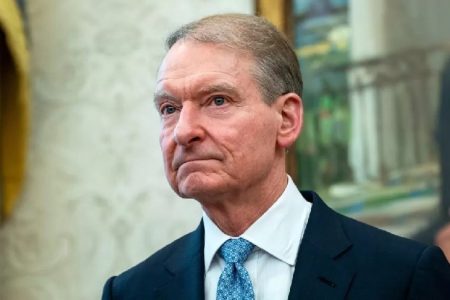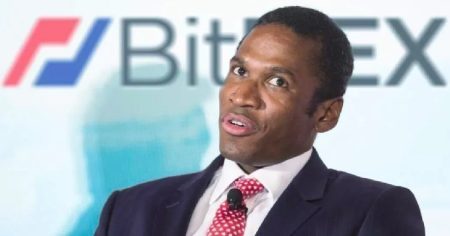The Satoshi Action Fund’s Proposal for a US Strategic Bitcoin Reserve: A Detailed Examination
The Satoshi Action Fund, led by Dennis Porter, has put forth a comprehensive draft executive order designed to integrate Bitcoin into the US financial system. This ambitious proposal calls for the establishment of a Strategic Bitcoin Reserve, held within the existing Exchange Stabilization Fund (ESF), marking a potential turning point in the relationship between governments and digital assets. The draft envisions a phased approach, beginning with a pilot program and culminating in proposed legislation to solidify Bitcoin’s role as a reserve asset.
The draft executive order proposes leveraging the ESF, a fund traditionally used to manage the US dollar’s exchange rate and respond to economic crises, as the initial custodian for the Bitcoin reserve. This allows for a swift implementation of the pilot program without requiring immediate congressional approval. The draft suggests an initial allocation of up to 2% of the ESF’s total portfolio value to Bitcoin over an 18-month pilot period. This pilot phase will allow the Treasury to gain practical experience in managing Bitcoin as a reserve asset and inform further legislative efforts.
Central to this proposal is the utilization of approximately 200,000 confiscated Bitcoins, currently held by the US Marshals Service (USMS), as the foundation of the Strategic Bitcoin Reserve. This innovative approach bypasses the need for significant initial investment and utilizes existing assets under government control. Valued at approximately $20.6 billion at a price of $103,000 per Bitcoin, this sizeable holding would represent a significant commitment to Bitcoin as a strategic reserve asset. The proposal also calls for an end to the auctioning of forfeited Bitcoin by the USMS, ensuring that future seizures contribute to the growth of the reserve.
The draft executive order details a framework for managing the Bitcoin reserve, drawing parallels with the management of traditional foreign currency reserves like gold. The US Treasury would be granted authority to acquire, hold, and manage Bitcoin within the ESF portfolio, treating it similarly to other reserve assets. To ensure the security and efficient management of these holdings, the Treasury would establish a dedicated working group. This group would be tasked with developing robust custody systems, evaluating solutions that provide the Treasury with direct access to the Bitcoin reserves, and leveraging existing custody infrastructure, such as the systems employed by the USMS.
Recognizing the importance of transparency and accountability, the draft incorporates robust oversight mechanisms. The Treasury would be required to submit semi-annual reports to Congress and the President, detailing Bitcoin transactions, holdings, and risk management strategies. Further ensuring transparency, the Treasury Inspector General and the Government Accountability Office (GAO) would conduct regular audits of the Bitcoin Reserve, with annual public summaries of their findings.
The draft executive order acknowledges that the ESF may not be the ideal long-term solution for managing a Bitcoin reserve. Therefore, within 24 months of the order’s enactment, the Treasury would be required to submit a comprehensive report to Congress. This report would outline the limitations and benefits of using the ESF as a Bitcoin custodian, explore alternative frameworks for reserve management, and provide legislative recommendations for establishing the Strategic Bitcoin Reserve through formal Congressional action. This approach allows for a swift initial implementation while also facilitating a thorough evaluation and subsequent legislative refinement.
The draft addresses potential concerns about the impact of Bitcoin integration on monetary policy and the US dollar. It explicitly states that the creation of a Bitcoin reserve would not interfere with the Federal Reserve’s independence in setting monetary policy. This provision seeks to allay fears that Bitcoin adoption could complicate traditional monetary frameworks or undermine confidence in the dollar. Instead, the proposal argues that leveraging Bitcoin’s unique position as a non-sovereign, global asset would hedge against macroeconomic risks, potentially stabilize the dollar, and position the US as a leader in financial innovation.
The proposal emphasizes Bitcoin’s unique characteristics as a non-sovereign, decentralized digital asset, contrasting it with traditional reserve assets like gold or foreign currencies. By holding Bitcoin, the US could potentially diversify its reserve holdings, mitigating risks associated with geopolitical instability and economic downturns. Furthermore, the proposal suggests that embracing Bitcoin could reinforce the US’s position at the forefront of financial innovation, signaling a commitment to exploring new technologies and potentially attracting investment and talent in the burgeoning digital asset sector.
The draft’s ambition extends beyond portfolio diversification. It posits that holding Bitcoin could serve as a strategic counterbalance to potential threats to the US dollar’s global dominance. As the world becomes increasingly digitized, and alternative currencies gain traction, the proposal suggests that integrating Bitcoin into the US reserve strategy could preemptively address potential challenges to the dollar’s status.
The draft also seeks to address the practical implications of managing a substantial Bitcoin reserve. The establishment of a dedicated working group within the Treasury, tasked with developing secure custody systems and exploring integration with existing infrastructure like the USMS system, underscores the commitment to responsible management of these digital assets. The emphasis on transparency and accountability, through regular reporting and independent audits, further reinforces the commitment to responsible governance.
If enacted, this executive order would represent a landmark moment in the relationship between governments and digital assets. The creation of a US Strategic Bitcoin Reserve could significantly impact the cryptocurrency market, potentially boosting Bitcoin’s legitimacy and accelerating its adoption by other nations. Furthermore, it could reshape global reserve practices, prompting other countries to reconsider their strategies in light of the US’s move. This bold proposal has the potential to redefine the role of digital assets in the global financial system and solidify the US’s position as a leader in financial innovation.







![Standard Chartered Cuts Bitcoin and Ethereum Forecasts, Predicts Bottom by [Date] at $[Price]](https://commstrader.com/wp-content/uploads/2026/02/3f2a2e40b5435ea86ade84c25b7ee76c02e7fe3c-450x300.jpg)






